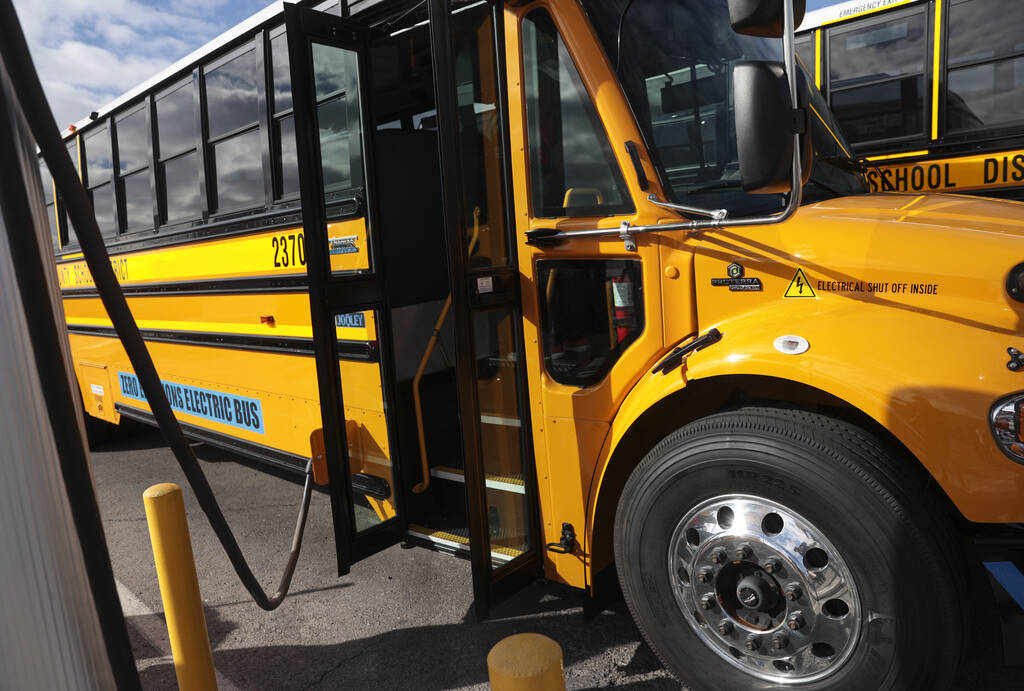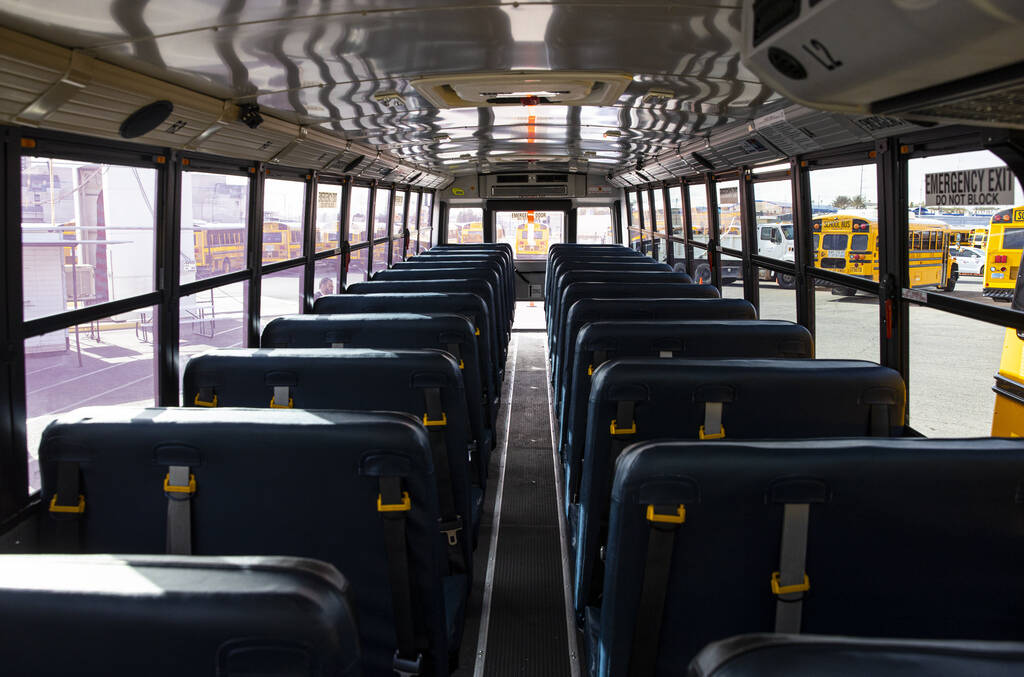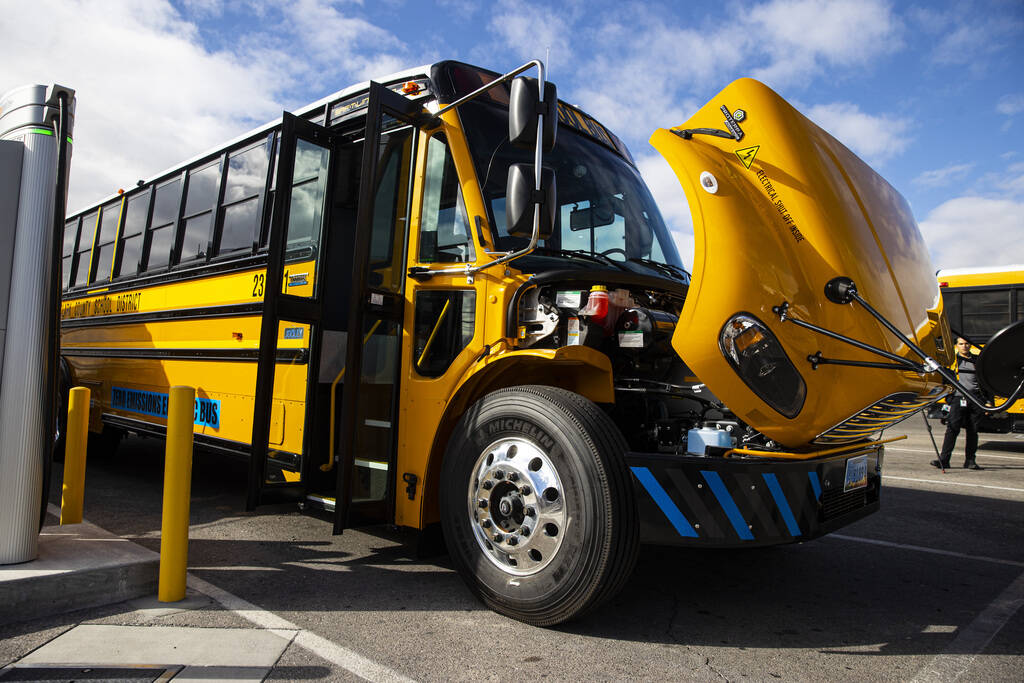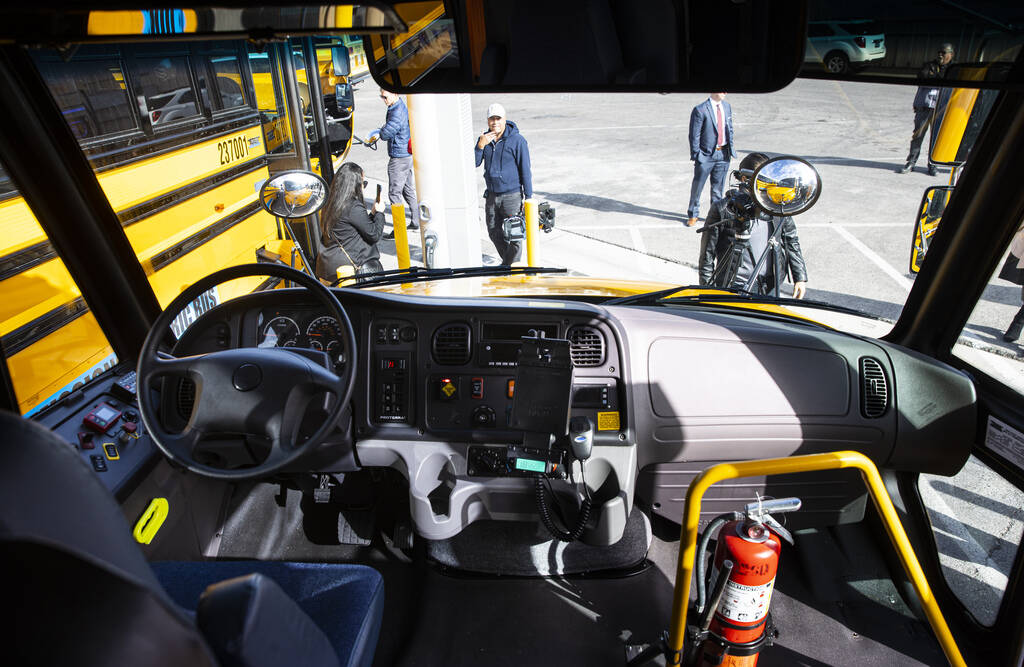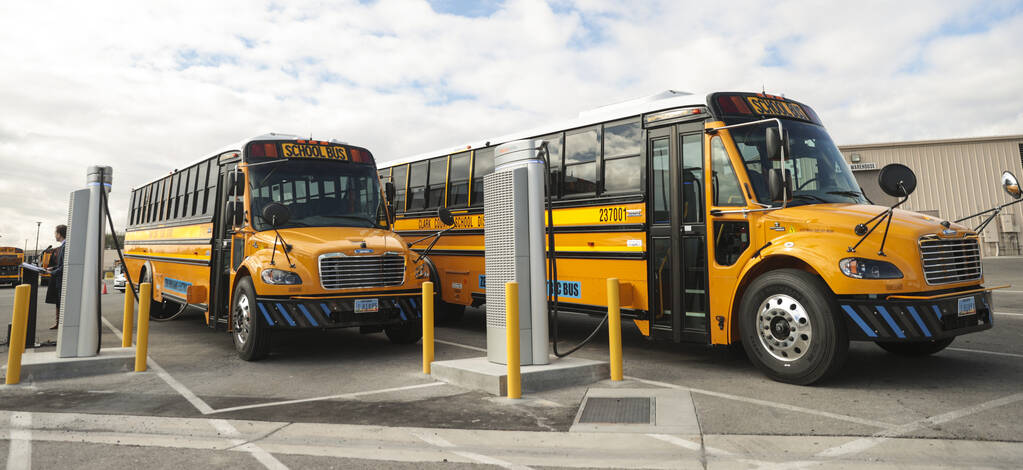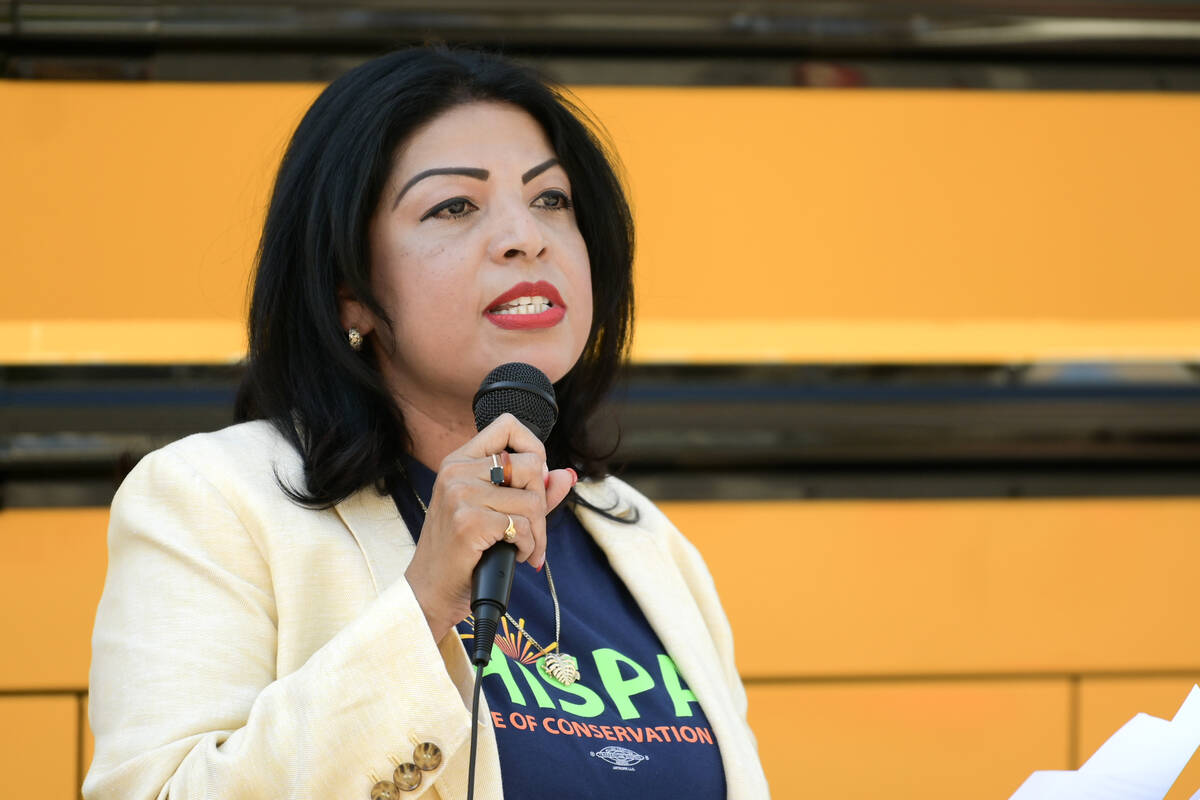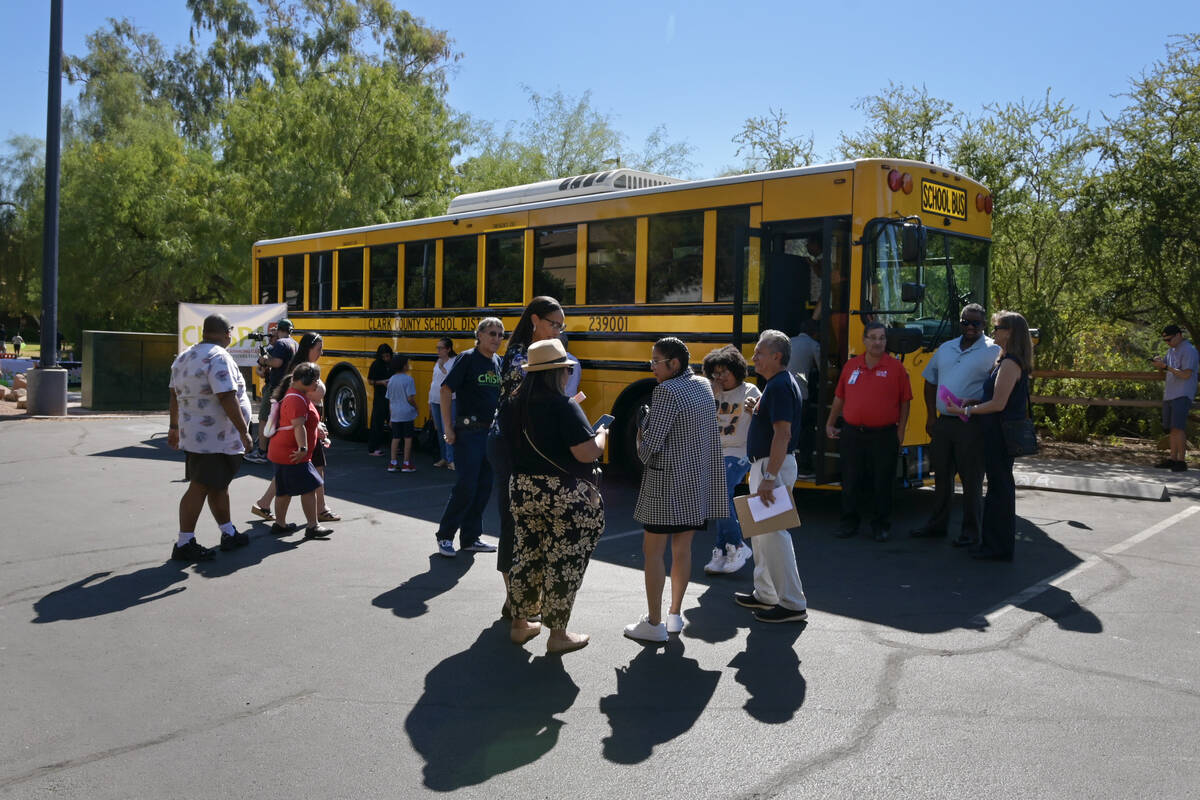Electric school buses in CCSD’s fleet ‘well worth the investment’
Community members, school administrators and activists gathered in Las Vegas on Saturday to tour one of the Clark County School District’s first electric school buses.
Chispa Nevada, which describes itself as a Latinx-led environmental group that has advocated for clean school buses in the valley since 2017, hosted the event at Winchester Dondero Cultural Center on McLeod Drive north of East Desert Inn Road. Speakers championed the district’s four buses currently in use, and the district’s commitment to purchasing 25 more. They also urged attendees to sign a petition supporting the complete overhaul of diesel school buses in Nevada.
“Chispa Nevada has so many families fighting for more electric buses,” said activist Guadalupe Lyn.“Together, we can protect the health of our students and give them clean air to breathe.”
Grants from NV Energy, the Nevada Division of Environmental Protection, and the Clark County Division of Air Quality funded the first buses, the Review-Journal previously reported. In May 2023, CCSD received $10 million from the federal Environmental Protection Agency’s Clean School Bus Program to buy 25 more.
A ‘pretty seamless’ transition, CCSD official says
CCSD representatives, like Transportation Manager Brandon Yacub, also raved about the program. Yacub said the electric models, which take about two hours to charge fully, have the same capacity as their diesel counterparts but require less maintenance. Though the buses cost double or triple that of diesel, he said they will ultimately save money on fuel costs.
“The transition to electric will be pretty seamless,” Yacub said. “Grant funding and incentives helped us get the buses, and they are well worth the investment.”
Ivon Meneses, 50, brought her family to the event, which saw attendees celebrating the electric buses over free tacos, live DJing and party games. Meneses said she has a good reason to embrace electric school buses.
Her son, who is 20, was diagnosed with asthma when he was 3. When he began to ride in diesel school buses regularly, Meneses said, it presented a problem for her household.
“I was staying home and missing work to care for him,” she added. “The inhalers and breathing treatments were very expensive, too. People don’t realize these diesel buses emit small, invisible particles. It is unsafe for adults — and children — to breathe that constantly.”
Clark County is the country’s fifth-largest school district and operates the country’s largest owned-and-operated school bus fleet, which numbers nearly 2,000 buses. Carolina Chacon, a spokesperson for Chispa, said that much more needs to be done to make electric school buses more common in Nevada.
“We’d love the school district to apply for even more electric buses,” Chacon said. “In Nevada, this is just the beginning — only a drop in the bucket when considering the total fleet size. Still, it’s amazing to see such a large district take this big step.”
Contact Akiya Dillon at adillon@reviewjournal.com.



